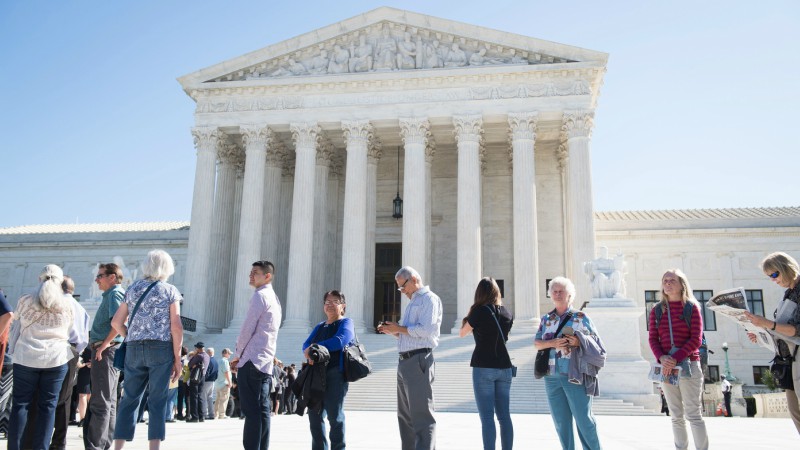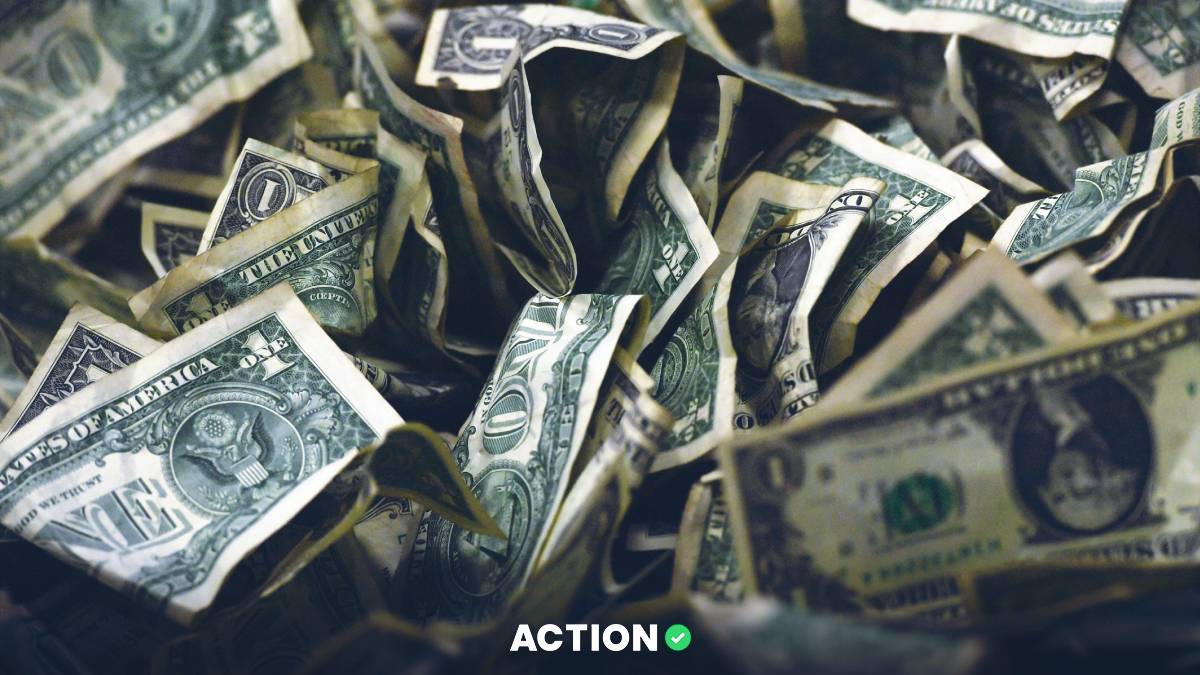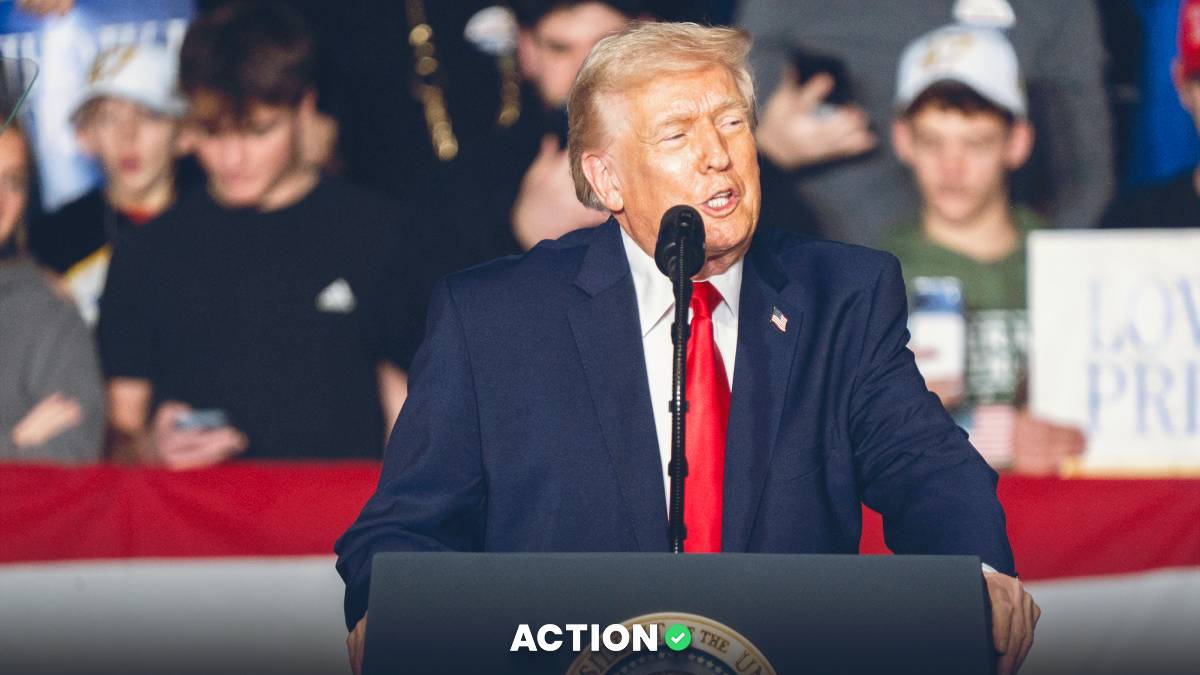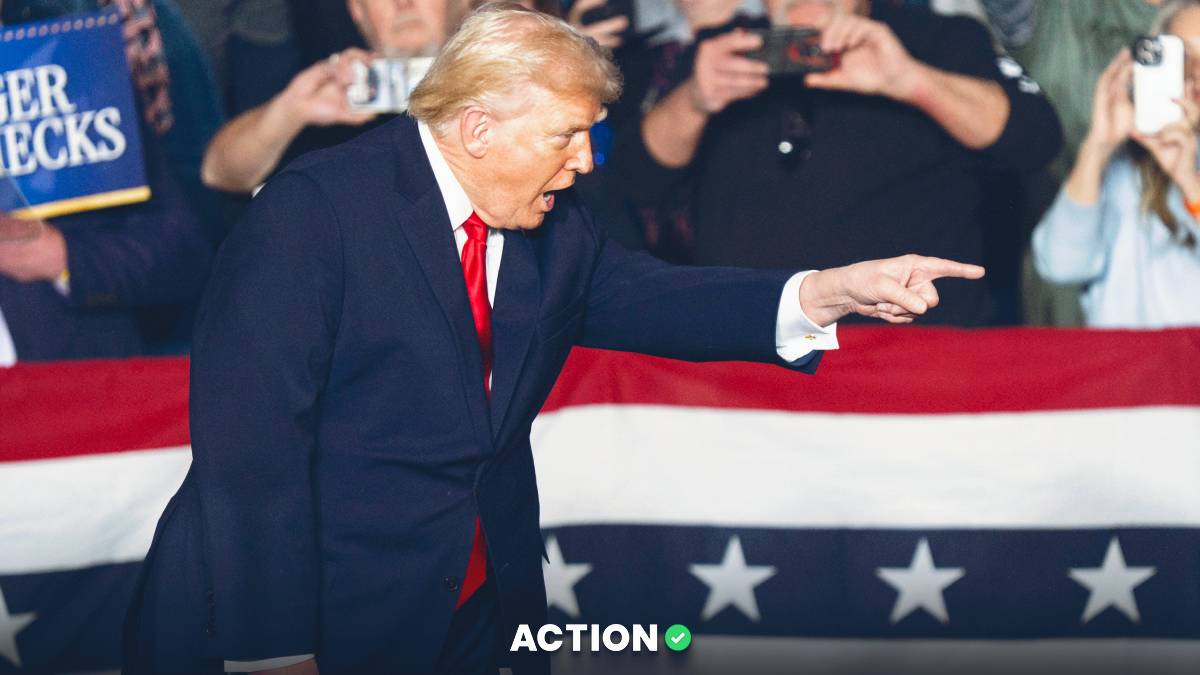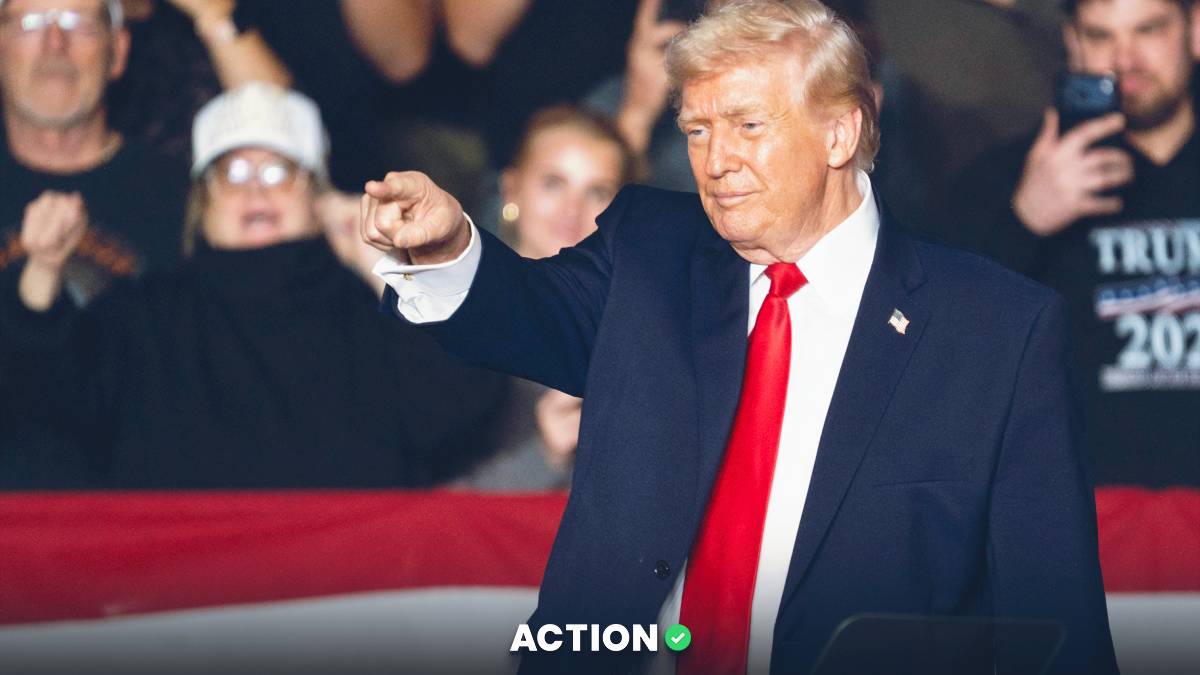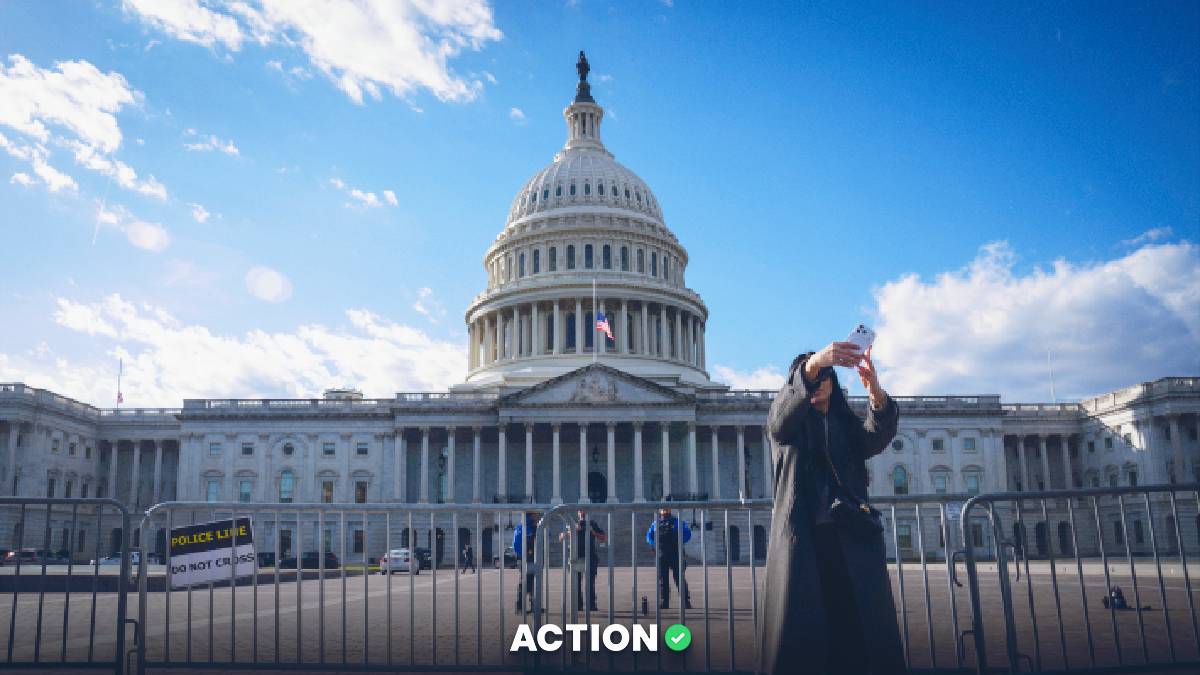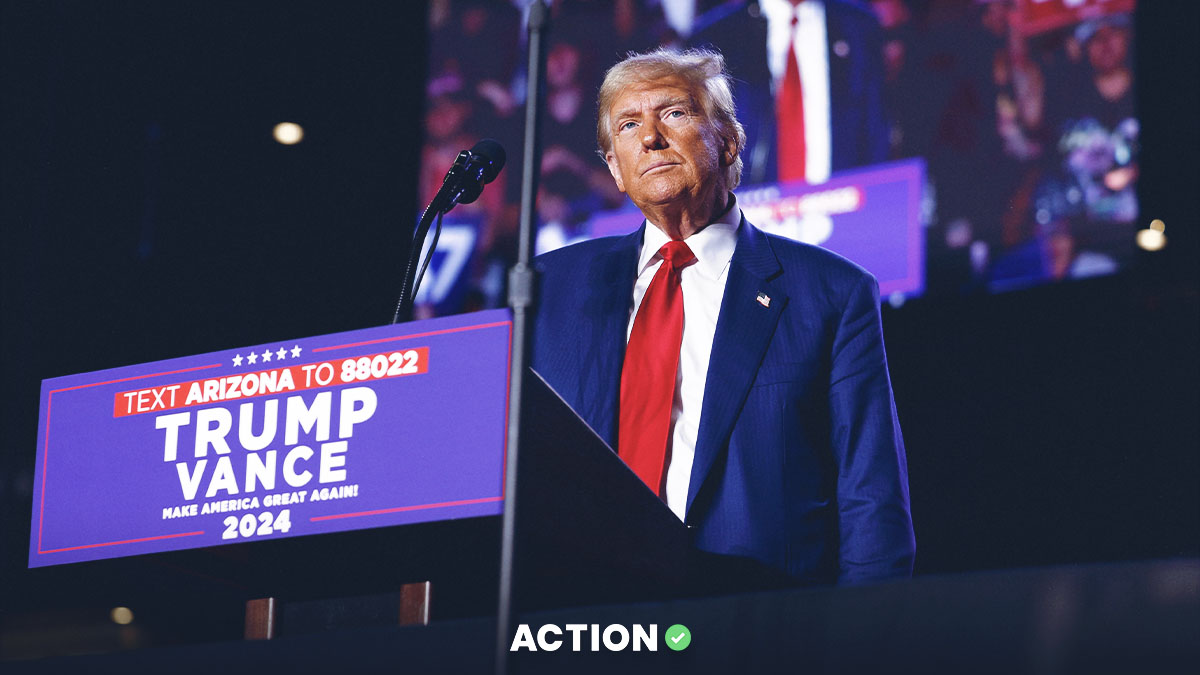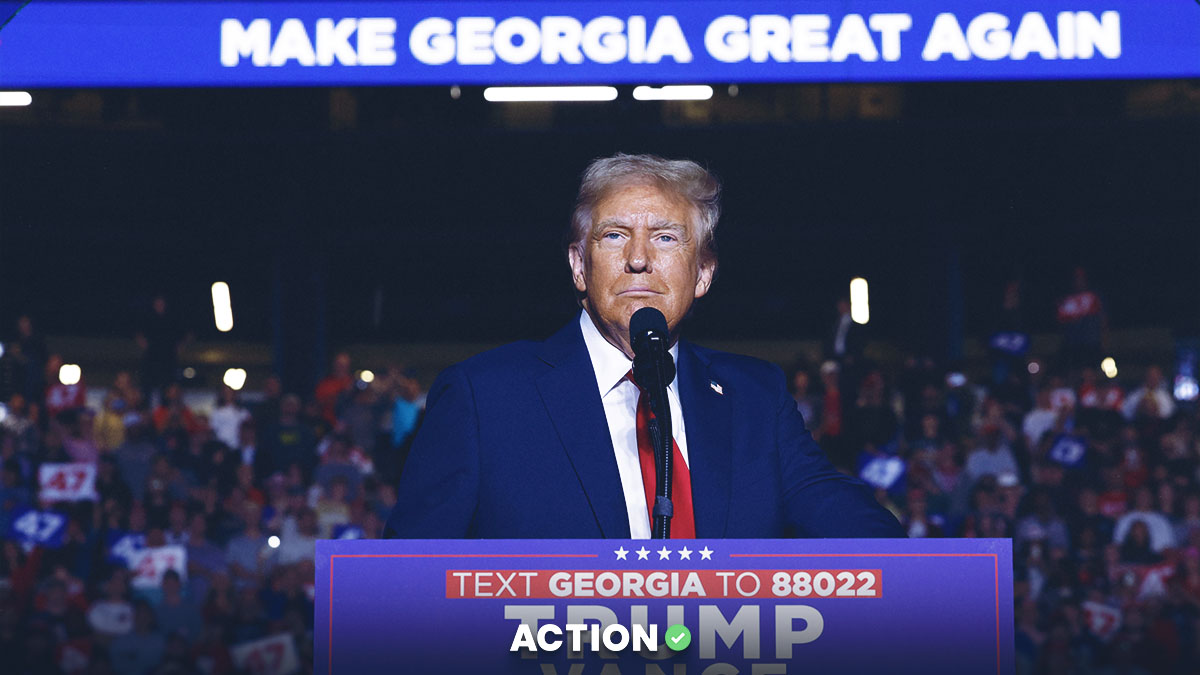The Highlights
- The U.S. Supreme Court ruled in favor New Jersey on Monday, saying states can legalize sports betting.
- Justice Alito wrote: "Congress can regulate sports gambling directly, but if it elects not to do so, each State is free to act on its own."
- Delaware, Mississippi, New York, Pennsylvania and West Virginia have all positioned themselves to enact legislation.
- Monday's ruling will probably push Congress to take a renewed look at sports betting.
New Jersey just cashed its Supreme Court-winning ticket.
“Just as Congress lacks the power to order a state legislature not to enact a law authorizing sports gambling, it may not order a state legislature to refrain from enacting a law licensing sports gambling,” wrote Justice Samuel Alito on behalf of the Supreme Court.
In a ruling that was effectively 7-2 in favor of New Jersey, the Supreme Court has sided with the Garden State in a long-running lawsuit about whether the partial federal sports betting ban in the Professional and Amateur Sports Protection Act (PASPA).
"Congress can regulate sports gambling directly, but if it elects not to do so, each State is free to act on its own," Justice Alito wrote. "Our job is to interpret the law Congress has enacted and decide whether it is consistent with the Constitution. PASPA is not."
PASPA was enacted on Oct. 28, 1992, and as of today, it's officially unconstitutional.
> Where Sports Betting Legislation Stands in Your State
"The PASPA provision at issue here — prohibiting state authorization of sports gambling — violates the anticommandeering rule," Justice Alito wrote. "That provision unequivocally dictates what a state legislature may and may not do."
Today’s decision ends the lawsuit initiated in 2014 by the NCAA, NBA, NHL, NFL, and Major League Baseball against then-New Jersey Governor Christie.
Dallas Mavericks owner Mark Cuban told The Action Network, "I think it’s great for the country that sports betting can come out of the shadows and become a tax revenue for states, as well as a large employer across the country. Plus, of course , every math geek is rejoicing right around now."
A look at the Supreme Court’s decision
In a 49-page ruling, the Supreme Court ruling in favor of New Jersey is also a victory for every other state interested in authorizing sports betting within its borders.
Outside of New Jersey, the other states ready take advantage of this ruling most immediately are: Delaware, Mississippi, New York, Pennsylvania and West Virginia.
> Sports Gambling Is Now Legal: All You Need to Know
“It is as if federal officers were installed in state legislative chambers and were armed with the authority to stop legislators from voting on any offending proposals,” wrote Justice Alito in the majority decision that represents the ruling of the Supreme Court. “A more direct affront to state sovereignty is not easy to imagine.”
Today’s decision also included separate opinions by other justices, including ‘concurrences’ and ‘dissents.’ While these opinions are reflective of the thought process of individual justices, they do not represent the controlling decision of the Supreme Court.
Immediate Impact on New Jersey
In the wake of its monumental Supreme Court victory, New Jersey will act quickly to secure a first-mover advantage over other states.
New Jersey’s ‘partial repeal’ at issue in the now-decided case can have immediate effect. Licensed casinos, licensed racetracks and former racetracks would seemingly be permitted to offer some forms of in-state sports betting as soon as they are able.
Just last week, New Jersey lawmakers introduced another sports-betting bill. The new bill included more robust regulatory features and may be a more optimal option for New Jersey.
It would probably take New Jersey a month or more to pass a new law and set up regulations for sports betting under any new law.
Near-Future Implications for Other States
States interested in legalizing, regulating, and taxing sports betting should send New Jersey a thank you note.
After today’s decision, these states now know what to do. They can mimic New Jersey’s ‘partial repeal’ or enact their own regulatory framework.
> Social Media Reacts to Supreme Court Legalizing Sports Betting
Over a dozen states are currently considering bills to legalize sports betting within its borders. Many include ‘placeholder clauses’ that would be activated by a favorable Supreme Court decision. As such, opportunistic states could move forward in the legislative process immediately if they want to.
There is no need for a placeholder clause anymore.
Next Steps for Sports Leagues and Congress
Of the five sports league plaintiffs in the Supreme Court sports betting case, two — the NBA and Major League Baseball — have already broken ranks and begun lobbying in favor of certain laws permitting sports betting. The PGA Tour has formally joined the lobbying push too.
"We remain in favor of a federal framework that would provide a uniform approach to sports gambling in states that choose to permit it, but we will remain active in ongoing discussions with state legislatures," NBA commissioner Adam Silver said. "Regardless of the particulars of any future sports betting law, the integrity of our game remains our highest priority."
MLB echoed to NBA, saying, "We will continue to support legislation that creates air-tight coordination and partnerships between the state, the casino operators and the governing bodies in sports toward that goal."
Cuban made the upside for the leagues and teams clear in an interview with CNBC: "I think everyone that owns a top-four professional sports team saw the value of their team double."
> What the Supreme Court’s Ruling Means for Las Vegas
Before Monday, the NCAA, NFL, and NHL had stayed on the sidelines, with no public-facing lobbying. Shortly after the decision, the NFL chimed in: "We intend to call on Congress again, this time to enact a core regulatory framework for legalized sports betting."
The Supreme Court’s ruling ends the five-plus years of litigation between the five sports leagues and the Governor of New Jersey. The five sports leagues — as the losers of today’s ruling — cannot appeal.
With activity swirling at the state legislative level, today’s SCOTUS ruling will probably push Congress to take a renewed look at sports betting too. While PASPA has been ruled unconstitutional, that does not prevent Congress from taking another stab at sports betting regulation.
Indeed, Congressman Frank Pallone (D-NJ) has already formally introduced legislation. Additional efforts — perhaps influenced by stakeholder lobbying — will probably spring up too. If so, hearing on Capitol Hill would be scheduled and witnesses would be asked to testify.
No Congressional hearings are current scheduled.
Here's a full PDF of the court's decision.


